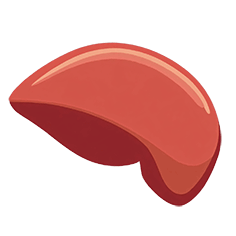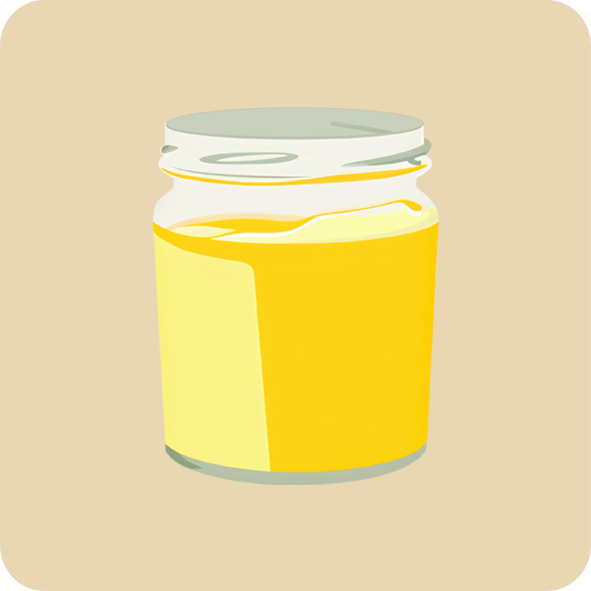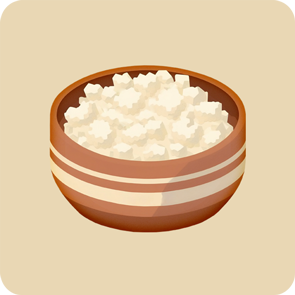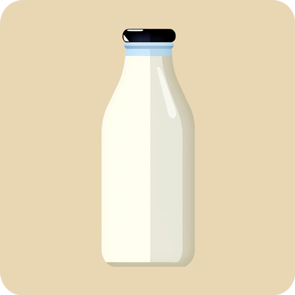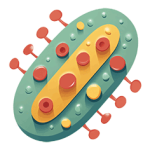
Immune System Health
Immune system health is critical for defending against illness, repairing tissues, and maintaining overall balance, strengthened by nutrient-rich foods, sufficient sleep, and stress management.
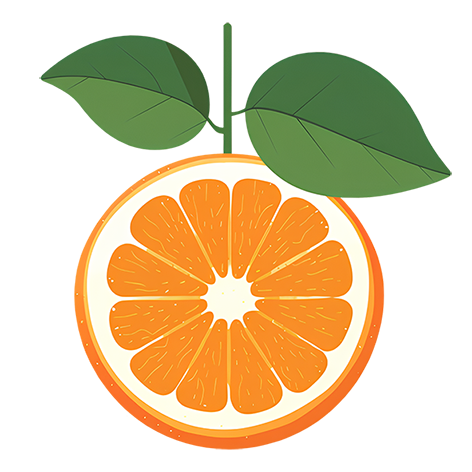
Glucose
(Preferred Fuel Source for Immune Cells)
- White blood cells, especially rapidly dividing ones, rely on glucose for quick energy during an immune response.
- Found in complex carbohydrates like whole grains, fruits, and legumes.

Vitamin C
(Immune Cell Function & Antioxidant Defense)
- Supports production and function of white blood cells (like lymphocytes and phagocytes).
- Found in citrus fruits, bell peppers, strawberries, kiwi, and broccoli.

Vitamin D
(Immune Regulation & Infection Resistance)
- Helps activate immune defenses and modulates the inflammatory response.
- Sourced from sunlight, fortified foods, mushrooms, and fatty fish.

Zinc
(Wound Healing & Immune Cell Development)
- Essential for the function of enzymes involved in immune responses.
- Found in legumes, nuts, seeds, whole grains, and tofu.

Probiotics & Prebiotics
(Gut Health & Immunity)
- Probiotics (like in yogurt, kefir, kimchi, sauerkraut) support good gut bacteria.
- Prebiotics (in onions, garlic, bananas, oats) feed those beneficial microbes.

Iron & Selenium
(Pathogen Defense & Antioxidant Support)
- Iron (from legumes, spinach, and tofu) helps kill pathogens.
- Selenium (from Brazil nuts, sunflower seeds, and mushrooms) supports antioxidant defense and immune response.

Protein
(Antibody & Immune Cell Production)
- Needed to make antibodies and immune signaling molecules.
- Found in legumes, soy products, nuts, seeds, eggs, and dairy.

Hydration
(Lymph Flow & Toxin Elimination)
- Water helps produce lymph, the fluid which carries white blood cells to support the immune system.
- Stay hydrated with water, herbal teas, and hydrating fruits and vegetables.
Top foods good
for the Immune System ✓

Citrus Fruits (oranges, grapefruits, lemons)
Rich in vitamin C, which increases white blood cell production and helps fight infections.
Red Bell Peppers
Contain more vitamin C than citrus fruits, plus beta-carotene to support skin and mucous membrane defense.
Garlic
Contains allicin, which boosts immune cell activity and helps fight viruses and bacteria.
Ginger
Has anti-inflammatory and antioxidant properties that support immune health and reduce sore throat symptoms.
Spinach
Packed with vitamin C, beta-carotene, and antioxidants to support immune system function.
Yogurt (with live cultures)
Provides probiotics that strengthen gut health, a key part of overall immunity.
Almonds
A rich source of vitamin E and healthy fats, both important for maintaining immune cell integrity.
Turmeric
Contains curcumin, which has powerful anti-inflammatory and immune-boosting effects.
Green Tea
Loaded with antioxidants (especially EGCG) that enhance immune cell function and reduce inflammation.
Sunflower Seeds
High in vitamin E, selenium, and zinc—all critical for immune response and antioxidant defense.
Broccoli
Rich in vitamins A, C, and E, as well as fiber and antioxidants, making it one of the most nutrient-dense immune-supporting vegetables.
Shellfish (oysters, crab, mussels)
Excellent source of zinc, which is crucial for immune cell development and function.Top foods bad
for the Immune System ✘

Sugary Snacks (candy, cakes, soda)
High sugar intake can suppress immune cell activity and increase inflammation.
Processed Meats (sausages, hot dogs, bacon)
Contain preservatives and unhealthy fats that may trigger inflammation and impair immune responses.
Fried Foods
Loaded with trans fats and advanced glycation end-products (AGEs), which can damage immune cells.
Excess Alcohol
Disrupts gut balance and suppresses the function of key immune cells.
Refined Carbohydrates (white bread, pastries)
Cause spikes in blood sugar and inflammation, weakening immune defense.
Energy Drinks
Often contain high caffeine and sugar, which can disrupt sleep and stress the immune system.
Artificial Sweeteners (aspartame, sucralose)
May alter gut microbiota, which plays a key role in immune regulation.
Fast Food
Typically high in salt, sugar, and unhealthy fats, promoting chronic inflammation and nutrient deficiency.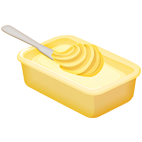
Margarine
Often contains trans fats that can impair white blood cell response and increase oxidative stress.
Excess Caffeine
Too much caffeine can disrupt sleep and increase cortisol, weakening immunity over time.Immune System Malnutrition
Effects 
1. Weakened Defense Against Infections
- Malnutrition impairs the immune system’s ability to fight off viruses, bacteria, and other pathogens.
2. Delayed Wound Healing
- Lack of protein, vitamin C, and zinc slows down the body's repair processes, including healing of cuts and injuries.
3. Increased Inflammation
- Nutrient deficiencies (like omega-3s and antioxidants) can lead to chronic low-grade inflammation, weakening immunity.
4. Reduced Production of Immune Cells
- Inadequate intake of vitamins A, D, C, E, and minerals like iron and zinc affects the creation and activity of white blood cells.
5. Greater Susceptibility to Respiratory Illnesses
- Undernourished individuals are more prone to colds, flu, and lung infections like pneumonia.
6. Chronic Fatigue and Weakness
- Malnutrition often leads to low energy levels, making it harder for the body to mount immune responses.
7. Impaired Gut Barrier Function
- Poor nutrition disrupts the gut microbiome and weakens the gut lining, allowing pathogens to enter the bloodstream.
8. Reactivation of Dormant Viruses
- A weak immune system can allow previously controlled viruses (like herpes or Epstein-Barr) to reactivate.
9. Autoimmune Risk or Overreaction
- Nutrient imbalances can cause the immune system to become hypersensitive, increasing the risk of autoimmune responses.
10. Increased Risk of Chronic Disease
- Long-term immune dysfunction from malnutrition is linked to diseases like cancer, diabetes, and cardiovascular problems.
Explore the Food Groups
Mattis nibh odio sed urna. Turpis suspendisse ullamcorper malesuada


